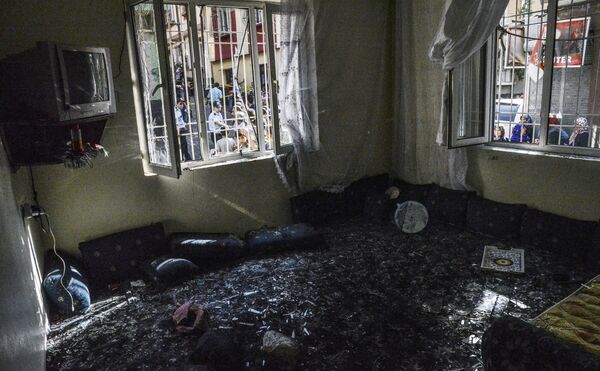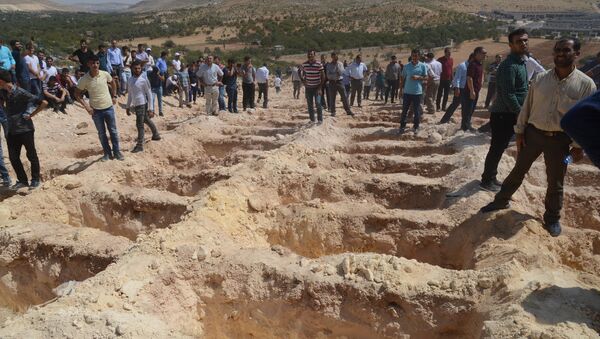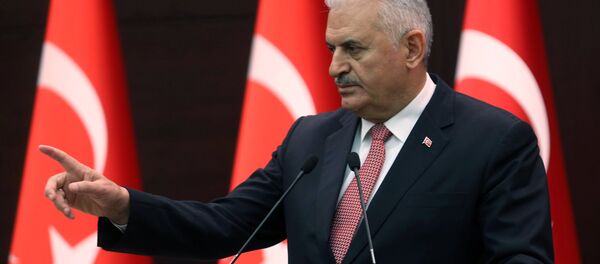The interview came after reports that the death toll from the suicide bomb attack on a wedding celebration in Gaziantep, a city in southeastern Turkey, had risen to 54 people.
More than 100 others were wounded in the bombing, which occurred at a Kurdish wedding party on Saturday night and which authorities say was the work of Daesh.
Tejel said that "we should see this tragedy in context of what is going on in the whole region, including Turkey and Syria."
"Because on the one hand, you have this attack, and on the other – we have the latest events in [the Syrian city of] Manbij where the Kurdish forces, who earlier seized the city, are now preparing to advance to other cities, such as al-Bab and Jarabulus," he said.
"According to some Kurdish sources, what could happen now is that there might be a kind of an agreement between Turkey and ISIS to give the Turkish troops an opportunity to occupy the city of Jarabulus if ISIS is defeated by the Kurdish forces," he said.
He added that it would be irrelevant to say that Turkey and Daesh are already working together, but that a sort of deal between the two may well be clinched.
"It seems that Turkey is facilitating things for ISIS," Tejel said, referring to reports that hundreds of jihadists could enter Syria via Turkish territory in the near future.
The bride and the groom survived in the explosion, but were seriously injured. Turkish authorities said that more than half of the victims of the blast (29) were under the age of 18 and 22 victims were under the age of 14.

Meanwhile, Turkish President Recep Tayyip Erdogan said that the attacker himself was a boy between the ages of 12 and 14. Officials are currently trying to determine his identity.
Gaziantep, a city near the Syrian border, is said to have several Daesh cells. Ankara has vowed to completely cleanse the self-proclaimed Islamic State from its territory.
Kurdish claims that President Erdogan may be working with Daesh against them conflict with the Turkish leader's own statements: he has noted that there is no difference between the internationally-condemned jihadist group, the Kurdistan Workers Party (PKK) and followers of exiled cleric Fetullah Gulen, whom Turkey blames for the failed coup attempt last month.
Just earlier this year, Kurdish troops in the country had launched attacks on Islamist and Free Syrian Army forces in northern Aleppo, leading the Los Angeles Times to marvel that the Pentagon-backed, predominantly Kurdish Syrian Democratic Forces were fighting CIA-backed anti-government militants.
Following the Gaziantep attack, many raised concerns that the bombing was aimed at inflaming ethnic tensions between the Turks and the Kurds.




